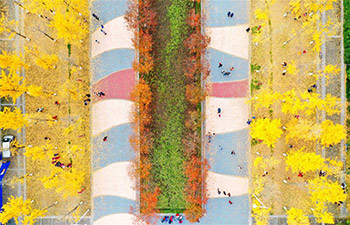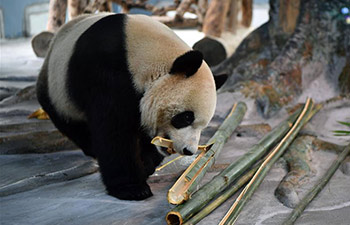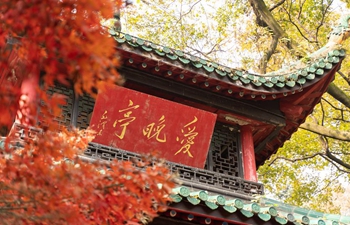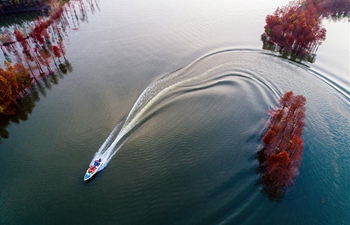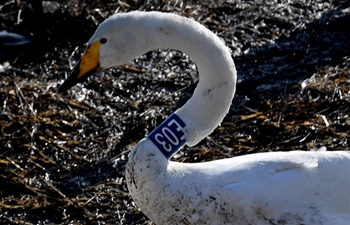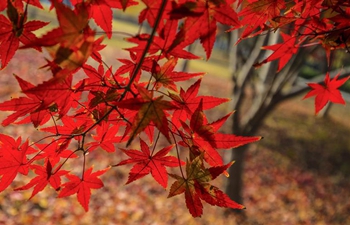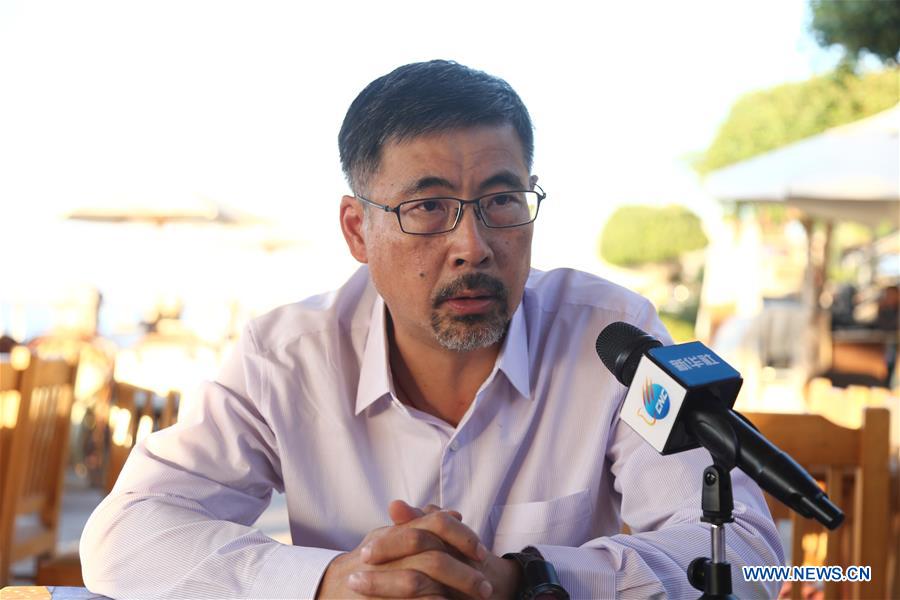 ?
?Jia Xiaobing, head of the first-ever Chinese archaeological team in Egypt, receives an interview with Xinhua in Luxor, Egypt, on Nov. 25, 2018. Jia Xiaobing said his team will excavate in the Montu Temple, located in the northern part of the renowned Temple of Karnak in heritage-rich Upper Egypt's Luxor province. (Xinhua/Ahmed Gomaa)
by Ahmed Shafiq, Wu Danni
LUXOR, Egypt, Nov. 26 (Xinhua) -- Jia Xiaobing, head of the first-ever Chinese archaeological team in Egypt, said his team will excavate in the Montu Temple, located in the northern part of the renowned Temple of Karnak in heritage-rich Upper Egypt's Luxor province.
"The first phase of our work is mainly tentative ... we intend to conduct a small-scale trial excavation around the outer walls of the Montu Temple, try to figure out the accumulation situation and obtain the basic information such as the age of the construction," Jia told Xinhua.
Jia, who is also the vice-director of the Department of Prehistoric Archaeology of the Chinese Academy of Social Sciences' Institute of Archaeology, said the team later will try to figure out the Temple's plain layout, expansion, repair situation and the continuation of use.
The Montu Temple was dedicated to the worship of Montu, a falcon-headed war god. First excavations were done by French archaeologist Fernand Bisson de la Roque from 1925 to the post-war.
The site was again excavated by the Louvre Museum between 1981 and 1991, focusing on the temple's surroundings.
"The Chinese team has four permanent archaeologists and two or three experts for short-term rotation," he said.
The workshop rented by the archaeological team is located near the Karnak Temple, on the Sphinx Avenue, not far from the excavation site, he pointed out.
"This is the first time that China has dispatched a complete archaeological team to Egypt to carry out archaeological excavations," Jia said, noting that the Egyptian side has provided a lot of support.
However, the Chinese archaeologist said his team has to face the lack of advanced surveying and mapping methods that they use in China but are currently not available in Egypt.
"The surveying and mapping work will be affected by this difficulty, but we are trying to deal with that under the support of Egyptian side," Jia said.
He revealed the Egyptian side has expressed hope that the Chinese team could work in the temple, which has not seen any archaeological work since the French archaeological teams left.
Jia said it has not been confirmed whether Egyptian experts will be working jointly with the team, praising the good tradition of archaeological work in Egypt.
"Egyptian experts have many ideas and means, especially they know the characteristics of the remains, they know by which means excavations can better be carried out, and they have better judgment and rich experience such as where to start digging," the team leader said.
He said that the ancient civilizations of both China and Egypt are brilliant, but different from each other, as well as the archaeological works.
Cooperating with Egyptian archaeologists is good for understanding the two ancient civilizations, and is kind of a promotion of each other, "which will be very significant for academic and international relations," Jia added.
Egypt, one of the world's oldest civilizations, has been working hard to preserve its archaeological heritage and discover the secrets of its ancient artifacts.
Over the past few years, the country has witnessed several big archaeological discoveries including Pharaonic tombs, statues, coffins, mummies, burial sites and funerary gardens.
